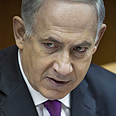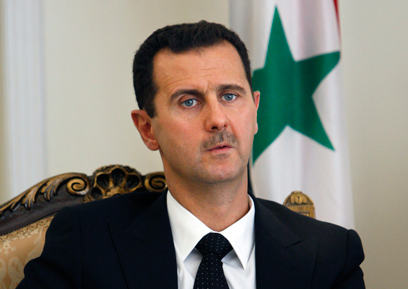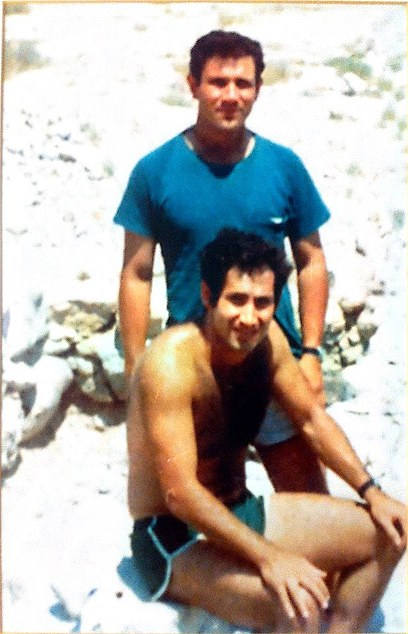
Second-choice sons
Op-ed: Netanyahu and Assad were both pushed into their leadership positions because their older brothers died
Since early May, tensions between Israel and Syria have escalated dramatically, after Israel allegedly conducted airstrikes into Syria to prevent the transfer of highly accurate Iranian-made missiles believed to be en route to Hezbollah.
Then, a series of battles between the Syrian government and the rebel forces over control of the Quneitra crossing in the demilitarized zone near the Golan Heights led many countries to withdraw their troops from the UN peacekeeping forces stationed as a buffer between Syria and Israel, heightening Israeli anxiety. When Hezbollah joined the embattled Syrian military, it materially enhanced the Syrian regime’s military position against the rebel forces, further heightening Israeli anxiety.
With declarations by Britain and France that the nerve gas Sarin had been used in Syria, confirmed by the UN inquiry in June, the conflict crossed a red line. Indicating that up to 150 had been killed by the gas, the previously reluctant White House stated it would be providing military support to the rebels. As expected, Syria has accused the US of fabricating evidence to justify intervention.
The two leaders at the epicenter of this conflict, Bashar Assad and Benjamin Netanyahu, although different in almost every way, do have one feature in common: Both are members of an exclusive fraternity. They are both “second-choice sons,” leaders by default. Neither was his father’s first choice to occupy the seat of power.
Both were pushed into their leadership positions because their older brothers, the initially designated choices to carry on the family torch, died before they were able to fulfill their fathers’ dreams of glory. The devastated patriarchs then turned to the sons who were next in line, who had grown up in the shadows of their brothers, and compelled them to abandon their own career ambitions and step in. (JFK, who grew up in the shadow of his older brother, Joe, was also a member of this exclusive fraternity).
Hafez Assad, who had led Syria with an iron fist for 30 years, had originally designated his first-born son, Basil, who was bold, charismatic, and aggressive, to continue his legacy. After Basil’s death in a car accident in 1994, Bashar, Hafez’s second son, who was receiving post-graduate training in ophthalmology in London, was summoned home to take his preferred brother’s place and prepare to succeed his ailing father, who died in 2000.
At the time of Bashar’s designation as successor, some were puzzled that Hafez had not selected his youngest son, Maher, who was much more like himself and Basil. Hafez may have had in mind making Bashar the civil face of Syria, while putting Maher in charge of the country’s security forces. In fact, it may well be that it is Maher who is responsible for the extent of the brutal violence being carried out against the Syrian opposition.
The remarkable Barbara Walters interview with Bashar on December 7, 2011 was especially telling, with Bashar claiming “They are not my forces; they are military forces belong(ing) to the government.… I don't own them. I am president. I don't own the country”. The trove of more than 3,000 of his personal emails released in March further confirmed that the president conveys the posture of the spectator rather than the author of the violent drama being played out.
Bashar is not like Muammar Gaddafi, who kept his vow to fight to “the last drop of (his) blood” in the face of the uprising in Libya. But while he does not possess the psychology of a martyr, he will not easily depart for exile, for he does not wish to bear the historical responsibility for the end of the Assad era. The regime’s use of poison gas is powerful testimony that it will go to any lengths to hold on to power.
Like Assad, Israeli Prime Minister Benjamin (Bibi) Netanyahu grew up in the shadow of his older brother. Jonathan, the beloved first-born son, was designated by their father, Benzion, to be the family’s political star. The views of Benzion, a Revisionist Zionist historian and academic, who believed in the notion of a “Greater Israel” (comprising modern-day Israel, Gaza, the West Bank, and Jordan), were dismissed by the Israeli establishment. So he looked to his eldest son, Jonathan, to carry on his cause.
When Jonathan was killed in 1976, leading a daring commando operation to rescue Jewish passengers from a hijacked plane in Entebbe, Uganda, he became a national hero. The devastated Benzion then turned to Bibi, the second in line, who was pursuing a career in business, to take Jonathan’s place.
But Bibi was never able to fully win the approval of his father, who was harshly critical of his son’s political maneuvering, especially his acceptance of the 1993 Oslo Accords, which established the framework of the two-state solution. When Bibi tried to explain that it was tactical, a necessary political compromise, his father retorted that what begins as tactical ends in a betrayal of principle. It transcends coincidence that one day after the UN upgraded the Palestinians’ status from “Observer
Entity” to “Observer State” on November 20, 2012, Netanyahu authorized the construction of 3,000 new housing units in the West Bank. With the settlements one of the biggest sources of contention in the Israeli-Palestinian negotiations, Netanyahu’s highly provocative act signaled that he would follow his father’s injunction that “We should conquer any disputed territory in the land of Israel. Conquer and hold it, even if it brings us years of war.”
Netanyahu will continue to follow his father’s strong stance in the face of escalating threats to Israel’s survival, most dramatically exemplified by the recent events in Syria, for he has identified with his father’s mission to be the guardian of Israel’s security.
For these two “second-choice sons,” leaders by default, who have led in the giant shadows cast by their fathers and older brothers, never living up to expectations, unevenness will continue to characterize their leadership, albeit in very different ways.
For Bashar, his family and the military continue to look over his shoulder, ensuring that he follows his father’s model and does not let the Assad dynasty crumble on his watch. And while the recent death of Bibi’s absolutist father may somewhat free Bibi, his dangerously inflexible stance was “bred in the bone,” and his father’s disapproving face continues to look over his shoulder.
Jerrold Post is Director of the Political Psychology program at the George Washington University. He is the author of “Leaders and their Followers in Dangerous World.” Ruthie Pertsis, a graduate of the Political Psychology Program, is his director of research












